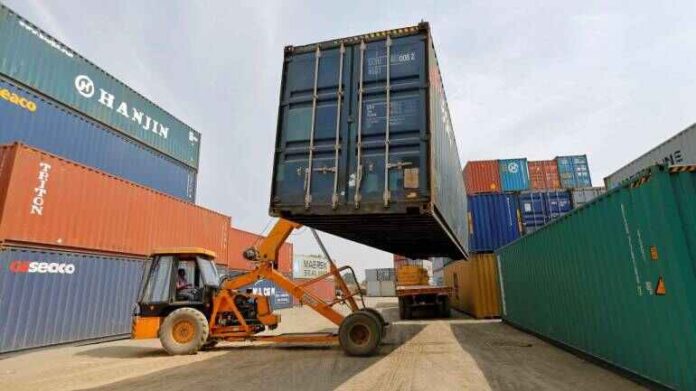ISLAMABAD: The Federation of Pakistan Chambers of Commerce and Industry (FPCCI) has expressed grave concern over the declining trend in exports, which have posted a downfall of around 20 per cent to $1.58 billion in August 2020, startling especially for the economic managers who claimed that economy was recovering from the adverse effect of a turbulent period of post-corona slowdown.
FPCCI President Mian Anjum Nisar said that the drop in exports during August period was really surprising, as he called for out-of-the-box solutions for economic growth in these crucial times as Covid-19 has adversely impacted the world economy as well as the Pakistan trade and industrial sectors.
According to data, Pakistan’s exports during the month of August recorded a downfall of around 20 per cent in dollar terms, as compared to the same period last year. Interestingly, the dip in August export figures comes after a surge in exports during July 2020, when Covid-19 restrictions were more stringently in place.
In the first two months of FY21, the exports went down by nearly 4 per cent, however, the country’s trade deficit, which stood at $3.7 in the comparative period of last year, contracted to $3.4 billion due to shrinking imports. In absolute terms, there was a reduction of $307 million or around 8 per cent in the trade deficit in the current fiscal year. Overall, imports dipped 6.30 per cent to around $7 billion during July to August.
Mian Anjum Nisar said that the flooding situation in the country, especially in Karachi, has also affected the overall industrial operations, adding that the exports volume might not begin to recover in September as economic activity is not expected to return to normalcy on an immediate basis.
He said that power outages, slowdown in business activities, delay in transportation and hampering of port operations were some of the issues faced by the exporters due to the unprecedented rains across the country.
The FPCCI president said that besides liquidity problems and issues of increasing cost, rains and subsequent urban flooding also caused significant damage to the infrastructure, disrupting the supply chain and affecting industrial operations.
He urged the concerned provincial governments to upgrade the drainage system in business hubs of all cities and pointed out that the sewerage systems in these areas were outdated and incapable of dealing with a heavy downpour.
He said that rainwater enters the factories, godowns, shops and basements, leading to damages in the merchandise, goods, plants, machinery and raw materials etc.
While the share of regional countries in world exports has considerably increased over the last 40 years, Pakistan’s exports have remained stagnant during this period, he said.
He said that unless attention was paid to all factors that hamper the industrial and exports growth, we may not be able to achieve the desired results. Some of the impediments to the growth of the industry include the cost of production, poor governance, obsolete technology, low productivity, lack of competitiveness, supply constraints and energy issues, he added.
He said that the government has already missed its annual export target for the first two years. For its second year, the economic managers had set the export target at $26 billion, subjected to a downward revision to $22.4 billion due to uncontrollable factors.
For the current fiscal year, the government has set the export target at $27.7 billion, requiring a growth of only 6 per cent.
Mian Anjum Nisar said that the government has to formulate long-term and consistent policies for the revival of industry and improvement in exports that have been stuck in a downward spiral for a long time.
He recommended the government to take immediate steps for the timely refund of sales and income tax, issuance of income tax exemptions on utility bills and solution of other issues faced by the industrial sector.
He said that although Pakistan’s current account deficit has continuously been reducing owing to lower imports and better inflows, the local currency has continued depreciating in value against the US dollar.
He warned that weakening of rupee indicates that the country might once again march towards a huge trade deficit, which increases the current account deficit again.



































